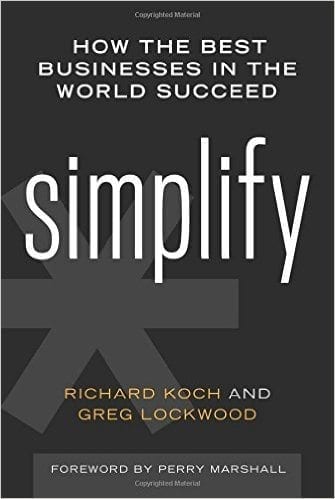Is Learning to Simplify the Secret to Success?

In researching the topic, the authors realized that “nearly all of the great success stories of the twentieth century – right up to the present day – are stories of simplifying.” Their book is filled with case studies of great simplifiers throughout history, from Henry Ford, to Steve Jobs, to the McDonald brothers. Through these case studies, they distill two vastly different (and incompatible) strategies for simplification, each capable of transforming entire markets and delivering high value to customers.
Price Simplifying
The first strategy is price simplification. Under this approach, an entrepreneur introduces a no-frills, budget-friendly version of a product or service into the market, priced 50-90 percent below existing offerings. The challenge is to radically redesign the product or service to eliminate “expensive” features that most customers can live without, while still fulfilling the same basic function.
Henry Ford, they write, said of the Model T “…its most important feature was its simplicity… I thought it was up to me as the designer to make the car so completely simple that no one could fail to understand it. That works both ways and applies to everything. The less complex an article, the easier it is to make, the cheaper it may be sold, and therefore the greater number may be sold.”
The authors explain that “price-simplifying works because markets usually respond to dramatic price cuts by multiplying their size exponentially. If the price is halved, demand does not double. It increases fivefold, tenfold, a hundredfold, a thousandfold or more.” Pioneers in price-simplifying create mass markets. What they give up in profit margin, they make up for in volume.
Companies like McDonald’s, IKEA, and Southwest Airlines can all attribute much of their success to relentless attention to price simplification.
Proposition Simplifying
The second approach, proposition simplification, is all about differentiation through the elimination of complexity, aiming instead for products that are “useful, appealing, and very easy to use.” Companies like Apple, Google, and Uber essentially created new markets through proposition simplification. They didn’t make their products or services a little bit better than competitors; they made them dramatically different in terms of usage, usefulness, or aesthetics.
Consider the Macintosh, iPad, and the iPhone. In each case, proposition simplification created large markets that had not previously existed. The products are successful in large part because, as the authors note, they are a “joy to use.” Steve Jobs’ biographer, Walter Isaacson, wrote that the Apple founder “made devices simpler by eliminating features, software simpler by eliminating features, and interfaces simpler by eliminating options.”
Pulling It Off
Of course these strategies are easy to understand, but a challenge to execute. They involve difficult choices. Fortunately, the authors go into considerable detail regarding how to choose between these strategies and put it into practice. Whether you are an entrepreneur starting a new venture or an executive in an established business, this book is well worth reading.
